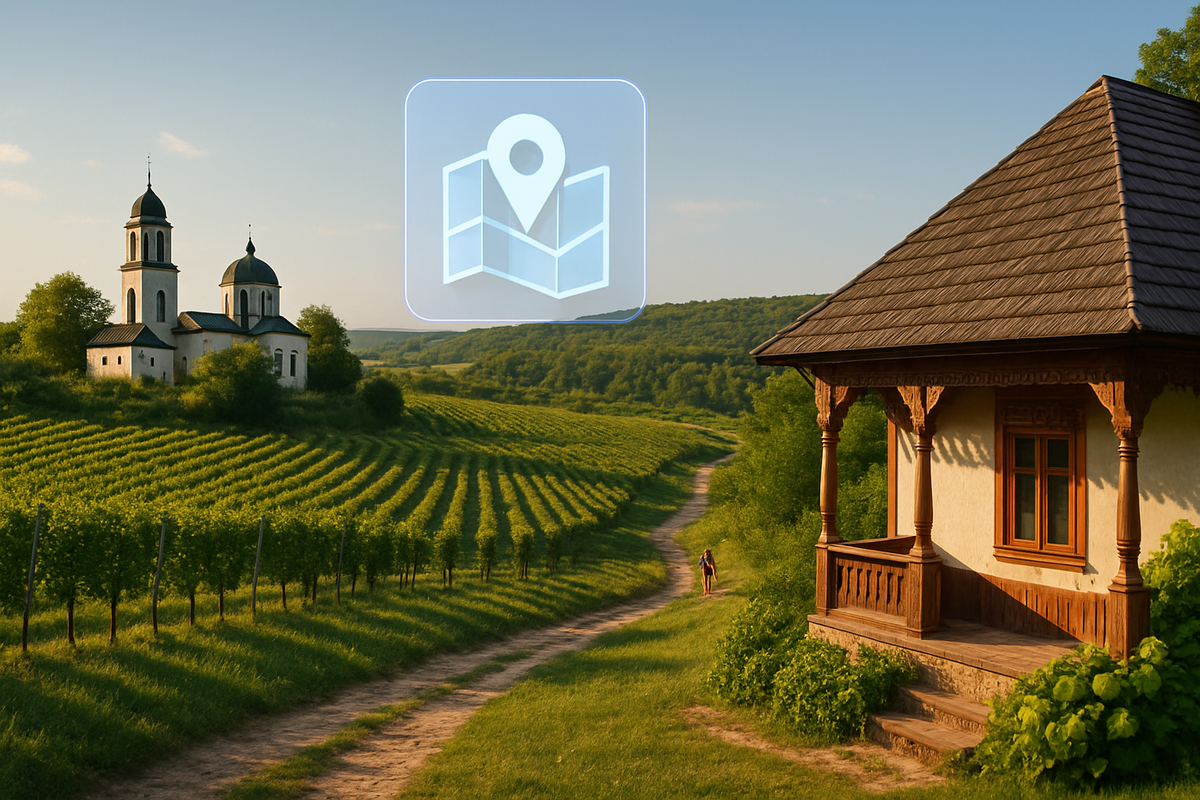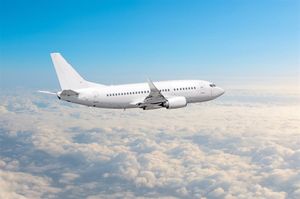
Chișinău, Moldova – October 6, 2025 – Moldova is rapidly transforming its tourism landscape, embarking on an ambitious journey to establish a vibrant ecosystem that seamlessly integrates its rich cultural heritage, pristine natural beauty for eco-tourism, and cutting-edge technology. This strategic pivot, spearheaded by the Moldovan government and supported by international partners, aims to significantly boost the nation's economic output and position it as a compelling, sustainable destination on the global stage. The concerted effort is expected to create new demand for local resources, ranging from skilled labor to sustainable infrastructure, while simultaneously preserving the country's unique identity.
The initiative represents a proactive response to evolving global travel trends, emphasizing authentic experiences and responsible tourism. With a clear vision outlined in programs like "Tourism 2028" and "European Moldova 2030," the country is laying the groundwork for sustainable growth, attracting both international visitors and crucial investment. This integrated approach promises not only economic benefits but also a renewed sense of national pride and an enhanced global profile for this often-overlooked Eastern European gem.
A New Dawn for Moldovan Tourism: Strategic Investments and Digital Leap
Moldova's journey to redefine its tourism sector is marked by a series of deliberate actions and strategic investments. The "Tourism 2028" program, nearing its finalization in late 2024, is set to become the cornerstone of this transformation, targeting a substantial increase in tourism's contribution to national GDP to 6.3% by 2028. This program is complemented by the broader "European Moldova 2030" National Development Strategy, which recognizes culture and the creative economy as vital pillars for national competitiveness.
Key initiatives include significant cultural heritage restoration projects, such as the EU-funded revitalization of the Chișinău Circus and the Tighina (Bender) Fortress, which began in January 2020 with support from the United Nations Development Programme (UNDP). These projects are crucial for attracting visitors and fostering cross-river cooperation. In a major step towards digitalizing the sector, July 2025 saw the launch of the Eko App Moldova. Developed by the National Tourism Office (ONT) in collaboration with the Human Doc Foundation and co-financed by Poland, this augmented reality-powered mobile application promotes sustainable tourism, highlights natural and cultural sites like the Orheiul Vechi Cultural and Natural Reserve, and features local entrepreneurs. It even incorporates accessibility features, including sign language interpretation.
The timeline of these developments showcases a consistent push: from the launch of Moldova's national tourism brand in 2014, through the establishment of the Cross-River Tourism Platform in 2022, to the Ministry of Culture's partnership with the Global Sustainable Tourism Council (GSTC) in January 2023, aligning Moldova with global sustainability standards. The "Wine Road of Moldova" received international acclaim as the "Best Wine Route" at the ITER VITIS Awards Gala in October 2024, solidifying the country's reputation in wine tourism. The Moldova Tourism Forum 2025, held in September, further underscored the nation's commitment, including a diplomatic tour to showcase its burgeoning potential.
Key stakeholders driving this transformation include governmental bodies such as the Ministry of Culture, the Ministry of Economic Development and Digitalisation, and the National Tourism Office (ONT). They work in close partnership with private sector entities like the National Inbound and Domestic Tourism Association of Moldova (ANTRIM) and prominent wineries (e.g., Cricova, Purcari, Castel Mimi). International organizations like the European Union, UNDP, USAID, UKAID, Sweden, and the GSTC provide critical funding and expertise. Initial reactions from the industry are largely optimistic, with stakeholders commending the focus on digitalization and sustainability, though some concerns remain regarding the modest state budget allocation for tourism (0.04% for 2024-2026), which the "Tourism 2028" program aims to significantly increase.
Shifting Fortunes: Who Wins and Loses in Moldova's Tourism Boom
The strategic development of Moldova's tourism ecosystem is set to create clear winners and losers across various sectors, driven by the increased demand for specialized services and sustainable practices. Companies that embrace innovation, sustainability, and digital integration are poised for significant growth.
Potential Winners:
- Hospitality Sector: Local guesthouses, boutique hotels, and agri-tourism complexes are direct beneficiaries. Companies like those operating within the successful tourism clusters in Cahul, Ungheni, and Dubăsari (which saw visitor numbers surge to over 100,000 in the "Heart of Nistru" micro-cluster in 2023) are likely to see increased bookings and investment. New accommodation facilities are already planned for 2024.
- Wine Industry: Moldova's renowned wineries, including private players like Cricova, Purcari, and Castel Mimi, will capitalize on the growing wine tourism segment, especially after the "Wine Road of Moldova" gained international recognition. Increased visitor numbers will drive sales of wine, related products, and experiential tours.
- Technology and Digital Services: Companies specializing in mobile app development, augmented reality, and digital marketing, such as those involved in creating the Eko App Moldova, will find a burgeoning market. The demand for digital solutions to enhance visitor experience and promote destinations will continue to rise.
- Transportation and Logistics: The introduction of initiatives like the Chișinău-Tighina-Tiraspol tourist train highlights opportunities for rail operators and other transport providers. Local tour operators, car rental services, and bus companies will also benefit from increased tourist traffic.
- Local Artisans and Gastronomy: The emphasis on cultural heritage and authentic experiences will boost demand for traditional crafts, local produce, and gastronomic services. This provides a significant uplift for small businesses and individual entrepreneurs in rural areas.
- Construction and Infrastructure (Public Companies): While the research does not specify publicly traded construction companies, the need for upgraded roads, utilities, and sustainable building practices for new tourism facilities will generate substantial contracts. Companies involved in infrastructure development will see sustained demand.
Potential Losers/Challengers:
- Traditional, Non-Adaptive Businesses: Businesses unwilling or unable to adopt sustainable practices or integrate digital tools may struggle to compete with modern, tech-savvy, and eco-conscious operators.
- Unsustainable Resource Exploitation: Industries that rely on environmentally damaging practices could face increased scrutiny and regulatory pressure as Moldova commits to global sustainability standards through its partnership with the GSTC.
- Companies Competing for Skilled Labor: The growth in tourism will increase demand for skilled workers in hospitality, tech, and cultural preservation, potentially leading to labor shortages and increased wage pressures for businesses that cannot offer competitive compensation or training.
Overall, the shift towards a high-value, sustainable, and technologically integrated tourism model will favor agile, forward-thinking enterprises that align with the national strategy.
A Blueprint for Sustainable Growth: Broader Implications and Global Trends
Moldova's integrated tourism strategy is not an isolated phenomenon but rather a microcosm of broader global trends in the travel industry. The emphasis on sustainable tourism, cultural immersion, and digital transformation aligns perfectly with what modern travelers increasingly seek. This strategic alignment positions Moldova to tap into a growing segment of conscientious and experience-driven tourists.
This event fits squarely within the global shift towards experiential and sustainable travel. As travelers become more aware of their environmental and social impact, destinations that offer authentic, low-impact experiences, coupled with a commitment to local communities, gain a competitive edge. Moldova's focus on eco-tourism routes, cultural heritage restoration, and empowering local entrepreneurs through initiatives like the Tourism Business Booster project directly addresses this demand. The partnership with the Global Sustainable Tourism Council (GSTC) further solidifies its commitment to internationally recognized best practices, potentially serving as a model for other emerging destinations.
The ripple effects of this strategy extend beyond direct tourism revenue. Cross-border cooperation, exemplified by the Cross-River Tourism Platform and the CULTURISE Project with Romania, fosters regional stability and economic integration. Increased tourism can also attract foreign direct investment, not just into hospitality but also into related sectors like agriculture, infrastructure, and technology. Furthermore, the digitalization efforts, such as the Eko App Moldova, contribute to the nation's overall digital literacy and innovation capacity, creating a positive feedback loop for other industries.
Regulatory and policy implications are significant. The "Tourism 2028" program and the "European Moldova 2030" strategy provide a clear, long-term framework, offering predictability for investors. The commitment to sustainability standards might lead to new environmental regulations and incentives for green businesses. Historically, countries that successfully leveraged unique cultural and natural assets, coupled with strategic marketing and infrastructure development, have seen substantial economic benefits. Slovenia, for instance, has successfully branded itself as a green, active, and healthy destination, demonstrating the potential for smaller European nations to carve out a distinct niche. Moldova's strategy echoes these successful precedents, aiming to differentiate itself from more mass-market destinations.
The Road Ahead: Opportunities, Challenges, and Future Scenarios
As Moldova presses forward with its ambitious tourism agenda, the coming years will be critical in realizing the full potential of its integrated ecosystem. Both short-term adaptations and long-term strategic pivots will be necessary to navigate emerging challenges and capitalize on new opportunities.
In the short-term, continued investment in infrastructure, particularly in rural areas, will be paramount. This includes improving road networks, enhancing digital connectivity, and developing sustainable accommodation options. The National Tourism Office (ONT) will need to intensify its international marketing campaigns, leveraging the success of the "Wine Road of Moldova" and the innovative Eko App to attract a broader international audience. Addressing the current imbalance where only 9% of over 500,000 annual tourists are inbound remains a key challenge, requiring targeted promotional efforts and improved accessibility.
Long-term possibilities include Moldova becoming a recognized leader in sustainable and experiential tourism within Eastern Europe. This could lead to a significant increase in foreign investment, the creation of thousands of new jobs, and a stronger national brand identity. The country may also explore expanding its cross-border tourism offerings, potentially collaborating more extensively with Ukraine and Romania to create multi-country itineraries that highlight the region's diverse heritage. Strategic pivots might involve adapting to climate change impacts on natural landscapes crucial for eco-tourism or integrating more advanced AI and VR technologies into the visitor experience.
Market opportunities will emerge in niche areas such as health and wellness tourism, gastronomic tours beyond wine, and adventure sports. Investors should look for opportunities in sustainable hospitality development, digital tourism platforms, and specialized tour operators. However, challenges include securing consistent funding (especially given the historical modest state budget allocation for tourism), developing a highly skilled workforce, and managing the environmental impact of increased tourism to ensure authenticity and sustainability are not compromised.
Potential scenarios range from a highly successful outcome, where Moldova achieves its "Tourism 2028" goals and becomes a top-tier European destination for sustainable travel, to a more moderate growth scenario if funding or implementation falters. A less favorable outcome could see the rapid development strain local resources or dilute the authentic experiences that currently attract visitors. The most likely scenario, given the current momentum and international support, is a steady, incremental growth, with Moldova gradually solidifying its position as a unique and appealing destination.
A Holistic Vision for Moldova's Economic Future
Moldova's concerted effort to build a tourism ecosystem that skillfully weaves together cultural heritage, eco-tourism, and technology represents a holistic vision for its economic future. The integrated approach, guided by ambitious programs like "Tourism 2028" and "European Moldova 2030," is not merely about attracting more visitors but about fostering sustainable development, empowering local communities, and enhancing the nation's global standing.
The key takeaways from this evolving narrative are clear: Moldova is committed to leveraging its distinct assets—its rich history, untouched natural landscapes, and burgeoning wine industry—while embracing digital innovation to create memorable and responsible travel experiences. The launch of the Eko App Moldova, the international recognition of the "Wine Road of Moldova," and the successful establishment of tourism clusters underscore the tangible progress being made. While challenges such as securing adequate funding and expanding inbound tourism persist, the strategic framework and the strong engagement from both public and private sectors provide a robust foundation for growth.
Moving forward, the market will keenly observe several indicators. Investors should watch for the implementation details and funding increases associated with the "Tourism 2028" program, the continued success and expansion of digital initiatives, and the growth trajectory of inbound tourist numbers. The development of sustainable infrastructure projects and the emergence of new private sector players aligned with the national strategy will also signal the long-term viability and attractiveness of Moldova's tourism sector. The nation's journey is a testament to the power of strategic vision and collaborative effort in transforming an emerging market into a destination of global appeal.
This content is intended for informational purposes only and is not financial advice





